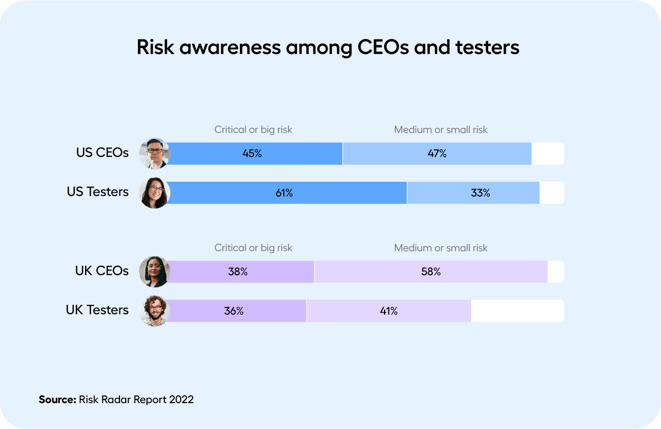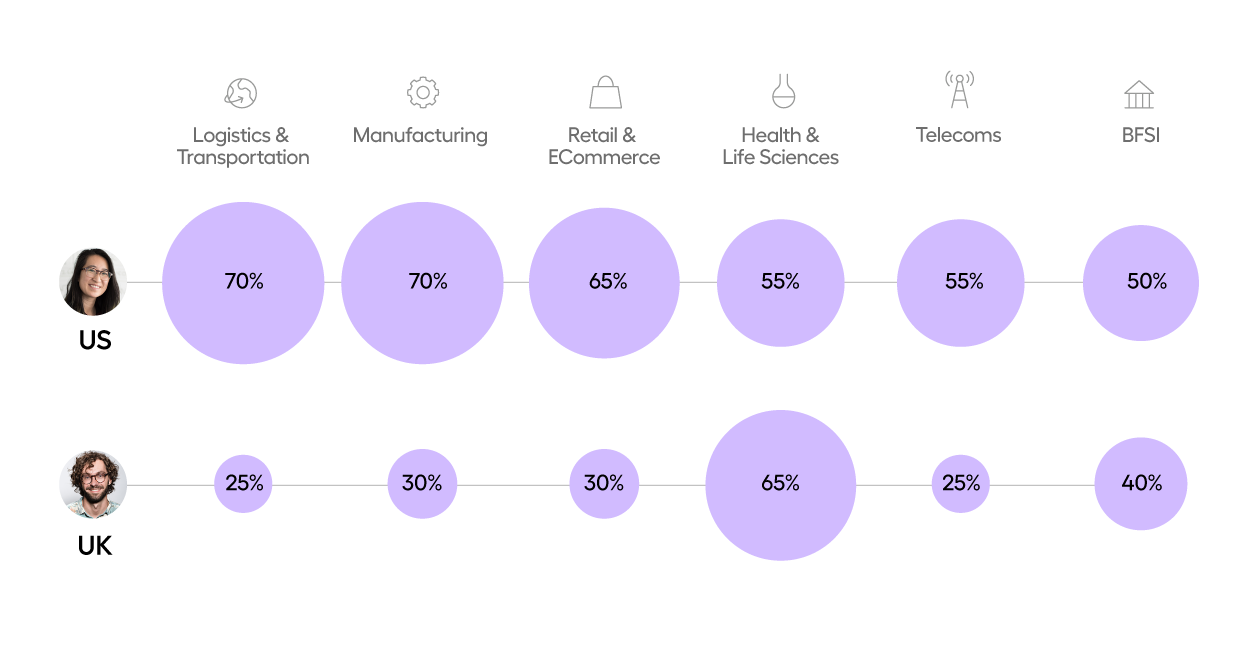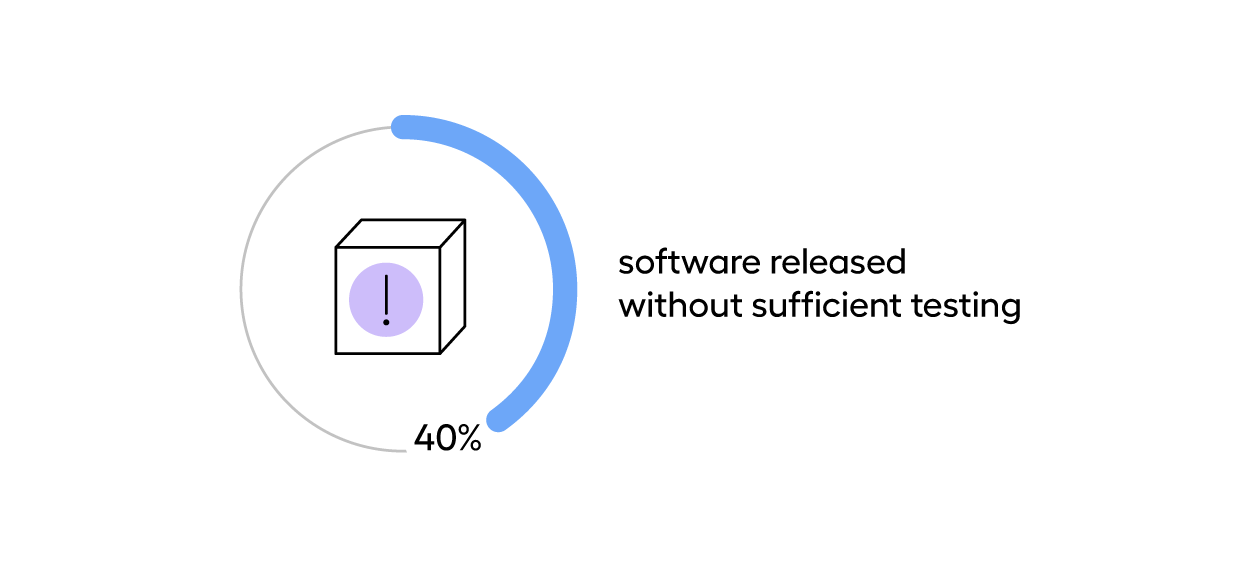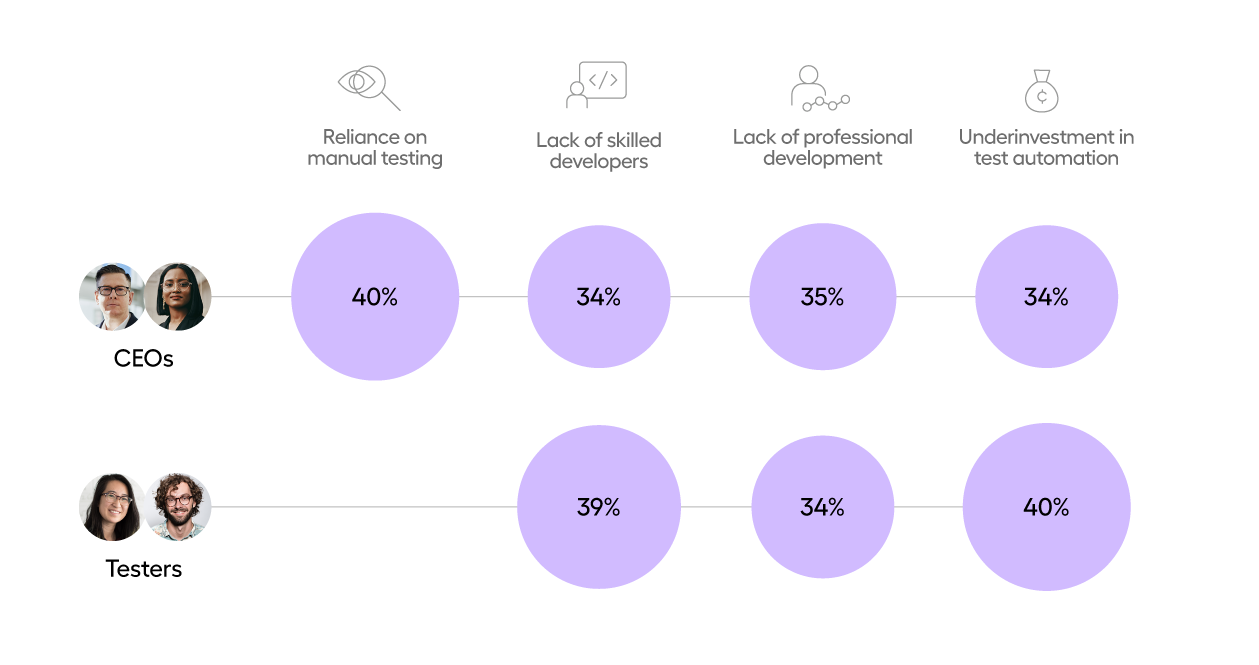What is Risk Management in Quality Assurance?
The connection between quality assurance (QA) and risk management is increasingly important. Quality assurance lays the foundation for business continuity and good user experiences, but with the fast changes in technology, this isn't enough on its own. There’s a growing need for a strong risk management strategy that actively addresses potential issues as they arise.
In this blog, we look at why it's crucial to improve risk management within QA practices and at the impact of risk awareness among those involved in QA. With complex software systems, it’s important to understand how quality assurance and risk management work together to maintain product quality and keep business operations running smoothly.
Skip to:
What is risk in quality assurance?
What is risk management in QA?
The need for heightened risk awareness
What is risk in quality assurance?
In quality assurance (QA), risk is all about the "what ifs" that could negatively affect our future. It's a mix of how likely something bad is to happen and how much it could throw us off course if it does. For anyone managing QA, staying on top of these risks is crucial to keep our software in top shape.
Managing risk is at the heart of what QA professionals do. Getting to grips with risk levels requires that you understand how likely something to occur, but also if it does, how much damage it’s going to do. This isn't just technical—it's about being prepared and making smart, informed decisions.
For QA testers, it’s vital to quickly pinpoint and handle these risks. They need to be sharp and agile, catching issues as a part of QA testing efforts before they become bigger headaches. It’s about keeping the software’s quality high, even when time is tight and the pressure is on.
What is risk management in QA?
What's involved in managing risk in QA? Well, it starts with a thorough risk assessment. This means looking into:
- What could go wrong and how it might happen—like anticipating the plot twists in a thriller.
- What factors could influence the outcome—think about what turns those plot twists into major events.
- Deciding if the risk is something we can live with—or if it’s a deal-breaker.
But it’s not just about making a list and checking it twice. Your team needs to actively engage with each potential issue:
- Rank the importance of each problem—which ones are nuisances and which ones are nightmares?
- Craft strategies to prevent these risks—how can we stop these problems before they start?
- Test how well these strategies work—is our prevention plan solid, or does it have leaks?
- Review everything—did we miss anything, and can we do better next time?
Here’s a trap you’ll want to avoid as a QA manager: leaping into action only when a major bug surfaces. This common reactive approach means losing sight of integrating risk management into your long-term strategies. Instead of just fighting fires, strive to prevent them. This shift from reactive to proactive can be a game-changer.
To really get ahead of the risks, it’s crucial to embed risk awareness into your daily QA processes. This doesn’t just mean responding swiftly to emergencies—it means anticipating potential issues and managing them before they escalate.
The need for heightened risk awareness
Heightened risk awareness is crucial for effective quality risk management. But what is the current state of play in terms of risk awareness among QA stakeholders?
We investigated this in our Risk Radar Report.
Here are some of the findings:
There is a diverse awareness of risk amongst US and UK testers and CEOs:

77% of CEOs could be leaving their businesses open to reputational and financial risks by releasing insufficiently tested software:

Testers who thought that poorly tested software issue to market presents a critical or big risk varied greatly across the industries:

8 out of 10 testers said that up to 40% of software goes to market without sufficient testing:

Around 40% of CEOs cited reliance on manual testing as the main reason why software is not tested properly:

It's vital for stakeholders to understand the serious consequences that bugs and software outages can have. To manage risks effectively, it's important that they fully appreciate the potential damage that these issues can cause.
The Risk Radar Report suggested that while the C-suite are clearly aware of the qa test automation challenges and risk presented by software failures, the right action isn’t always taken to prevent them from taking place.
That’s because QA stakeholders are too dependent on high-profile outages to serve as a reminder of software risk. Currently, we’re dealing with a reactive rather than proactive approach.
From a loss in revenue to a reduction in productivity and a knock-on effect on a company's reputation, we have seen the impact of high-profile outages, but it could be cause for concern that it requires such events for CEOs and testers to acknowledge the extent of risk caused by insufficient testing.
It highlights a reactive approach to risk, as opposed to a proactive one.
Want to know more about risk in QA? Download our Risk Radar Report below.

